The Clinical Research and Occupational Medicine Division of EOHSI includes seven physicians, 2 PhD psychologists, a PhD study coordinator, and a staff of 35 nurses, medical assistants, and administrators. We are active in teaching of toxicology, medical and public health students, as well as our OEM residency. The latter is directed by Michael Pratt, MD, MPH, immediate past president of the Association of Occupational and Environmental Clinics.
We are also a NIOSH-funded site for care of WTC rescue and recovery worker (PI Iris Udasin, MD, MPH). We are frequently called on by physicians, state and national governments, insurance companies, attorneys, and courts to assess individual exposure concerns
Our research is directly pertinent to CEED’s precision environmental health theme. Studies examine the consequences of environmental and occupational exposures using experimental and observational methods on human study participants in a controlled exposure facility or from existing occupational and environmental exposures. Research efforts are funded by NIOSH, CDC, NIEHS, DOE, USEPA, and other sources.
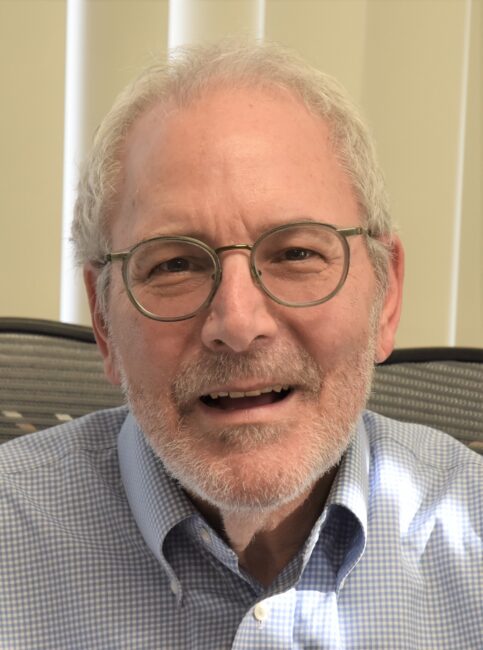
Director: Howard Kipen, MPH, MD
Dr. Nancy Fiedler completed a study of workers chronically exposed to lead and found that hormonal response to stress was significantly altered by lead. She has also completed studies of workers chronically exposed to solvents; functional imaging in these workers revealed significantly decreased activation in brain regions required for successful performance of a behavioral task.
Dr. Nancy Fiedler received a Fogarty International Center R21 grant funded by NIEHS to characterize pesticide exposure and to study the effects of that exposure on behavioral performance among Thai children 6 – 8 years old. This grant also provides funding to build research capacity among students and faculty of the School of Public Health at Chulalongkorn University, Bangkok, Thailand. Building on her work in Thailand, Dr. Fiedler and Dr. Dana Barr of Emory University received a Fogarty International Center R01 grant, also funded by NIEHS, to collaborate with Chulalongkorn and Chiang Mai Universities to evaluate the neurodevelopmental effects of prenatal pesticide exposures.
Dr. Michael Gochfeld continues to study chromium exposure in Hudson County, NJ, where almost 200 sites were contaminated through disposal of chromate processing waste as landfill. Subsequent development on and around the sites resulted in exposure of many Jersey City families. Pre- and post-remediation exposure studies have been conducted with funding from the New Jersey Department of Environmental Protection.A recent investigation characterized dioxin exposure in unionized Passaic River dock builders..
Dr. Michael Gochfeld, along with Joanna Burger, continued research and advisory activities of the Consortium for Risk Evaluation with Stakeholder Participation (CRESP), funded by the U.S. Department of Energy. CRESP focuses on the risk assessment and management of radioactive and chemical wastes, the legacy of the nuclear weapons program. Current research focuses on knowledge and beliefs of Native Americans and others regarding radiation and future use of contaminated sites. studies One aspect involves exposure of high end fish consumers to methylmercury, and the modifying effects of selenium.
Dr. Robert Laumbach is studying how air and water pollution affects health in environmental justice communities where increased exposure to chemical contaminants and other environmental and social stressors intersect to create health disparities. He has a particular interest in how traffic-related air pollution interacts with psychological stress in urban communities to worsen adverse health outcomes. Dr. Laumbach collaborated with Dr. Fiedler on a community-based participatory research project (CBPR) to examine effects of diesel exhaust air pollution and psychological stress on children with asthma in port-adjacent communities.
Dr. Laumbach is also directing a community-engaged research project on the health effects of per- and polyfluoroalkyl substances (PFAS) in drinking water in Gloucester County NJ, one of the 7 sites across the country within the CDC’s national Multi-Site Health Study.
Dr. Howard Kipen and colleagues at the School of Public Health (and PI Jim Zhang, now at Duke), studied acute cardiovascular biomarker improvements associated with the drastic air pollution reductions in Beijing during the 2008 Olympics.
Drs. Kipen and Laumbach have been translating findings from acute diesel exposures in the CEF to the more “real world” exposures of the New Jersey Turnpike, focusing on cardiorespiratory biomarkers.
Drs. Laumbach and Kipen have partnered with Sabiha Hussein of the Division of Pulmonary Medicine, Department of Medicine to study asthmatics following acute diesel exposure. They observed decreases in FEV1 and increases in pulmonary oxidative stress markers, more pronounced in those who were null for the GSTM1 antioxidant enzyme gene.
.Dr. Kipen led a study that detected SARS CoV-2 aerosols in homes of Covid-19 patients, validating the newly hypothesized dominance of person-to-person transmission.
Dr. Kipen and colleagues examined the ability of portable air cleaners to reduce indoor PM in apartments of elderly and their effects on biomarkers. They also showed that significant reductions in PM could be achieved even with ad lib opening of windows.
Dr. Kipen and Dr. Andrew Gow received an inter-center NIEHS pilot grant to explore mechanisms of CO2-induced cognitive impairment in a controlled exposure experiment. They also have a second NIEHS pilot to explore the same phenomenon in a rodent model.
Dr. Iris Udasin published a number of descriptive epidemiology papers on the health of the entire WTC cohort. Drs. Laumbach and Kipen, together with Drs. Dan Wartenberg (deceased) and Panos Georgopoulos, published study that demonstrated no relationship between WTC plume exposure and asthma exacerbations among residents of New York City outside of lower Manhattan. Am J Epidemiol 170: 640-649, 2009
Julie Caruth, MD, MPH is using a NIOSH pilot grant to explore transmission of Covid-19 in New Jersey Department of Corrections health care workers.
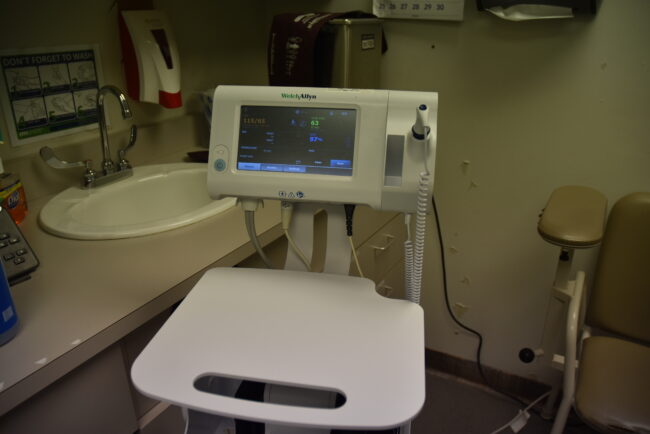
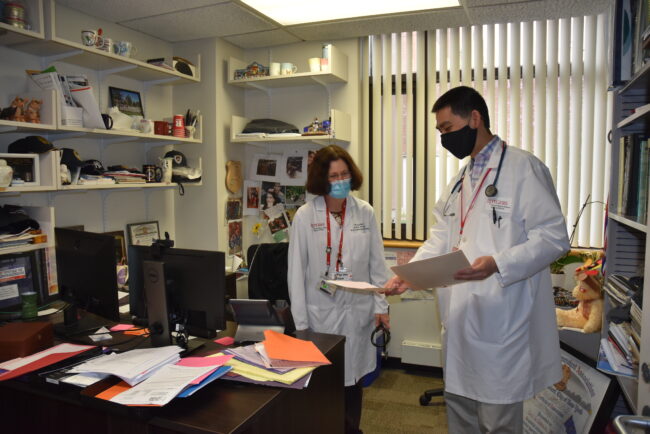
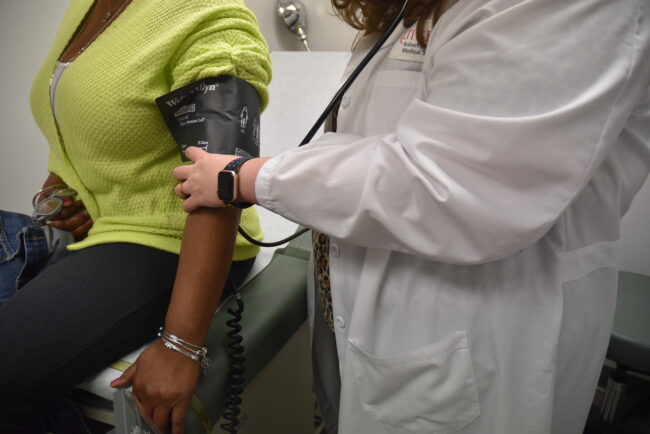
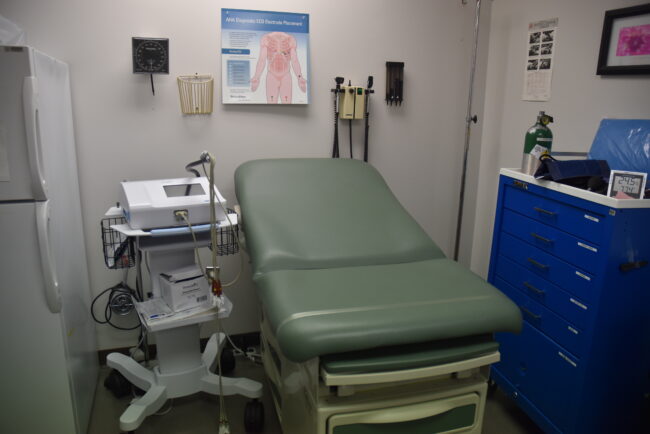
Copyright © 2021, Rutgers, The State University of New Jersey


